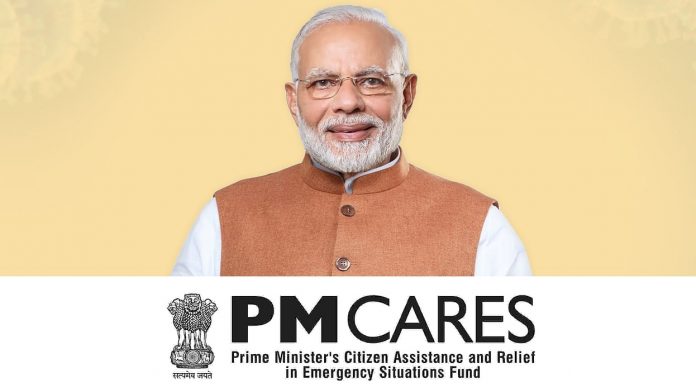The Delhi High Court on Wednesday has deferred its hearing till October 11 in a plea seeking declaration of the Prime Minister’s Citizen Assistance and Relief in Emergency Situations Fund (PM CARES Fund) as ‘State’ under Article 12 of the Constitution.
The Division Bench of Chief Justice D.N Patel and Justice Jyoti Singh has the plea which seeks clarity on the legal status of the PM-CARES Fund, including whether it falls within the category of “State” under Article 12 of the Constitution.
Senior Advocate Shyam Divan, appearing for the petitioner, argued that PM Cares Fund is nothing but State, as it is being projected to the world at large as being a part of the Government of India. He submitted that such a high governmental functionary is not permitted to create a structure that is apparently exempt from the Constitution or outside the reach of the Constitution.
He drew the attention of the Bench to the “Deed of Trust” which was executed in March 2020 by the Prime Minister of India, thereby constituting the PM-CARES Fund. He stated that the Fund is of a “permanent character” and is established in public interest, which makes it a Governmental Fund.
“It is permanent in nature. It has a public purpose of the widest objective for the people of India. Settler is no one less than the Prime Minister of India… And the fact that you are using Prime Minister in your name, it becomes a Governmental Fund,” he added.
Referring to Clause 5.3 of the Trust Deed which states that there is no governmental control in the functioning of the Trust, Mr.Divan argued that ‘parties cannot contract out of the Constitution’. “Constitution is elastic and extends across India and to all functionaries,” he submitted.
“Can an ex-officio Collector setup a Trust with certain other government officials holding government post; and say that as far as this is concerned it is a private Trust, but has a laudable objective and is not a State?”- he remarked, adding that members of Legislature cannot reach out and create structures that are immune from constitutional oversight.
In addition, he referred to the composition of Board of Trustees which include Prime Minister, Defence Minister, Home Minister and the Finance Minister as ex-officio Trustees of the Fund.
“The Trustees here are ex-officio, headed by the Prime Minister. Administered by the Prime Minister Office. (This) shows pervasive control of the Prime Minister.”
He also highlighted that the official website of he PM-CARES Fund uses the State Emblem of India and is registered by the domain name ‘pmcares.gov.in’. “The use of the Emblem conveys official sanction, public confidence, as also a message that this belongs to the Government,” he contended.
He went on to refer to statements made by high functionaries of the Government, including the Vice President, projecting the Fund as a Government Fund. “We are not saying that these activities are bad. We are only submitting that this must come under the discipline of the Constitution, because everyone thinks its State, including the Vice President,” he stated.
Citing “Pradeep Kumar Biswas v. Indian Institute of Chemical Biology”, wherein the Apex Court held that the CSIR is ‘within the range’ of ‘the State’ under Article 12, he argued that the Government of India deeply and pervasively controls the Fund inasmuch as the Fund is being administered by the Prime Minister Office, as also the officers assisting in the operations of the PM-CARES are from the Prime Minister Office.
He concluded by contending that apart from a self-declaration stipulated under Clause 5.3, there is no factor which suggests that the Fund is not a State.
At the outset, a public interest litigation has been filed by Advocate Samyak Gangwal through Advocates Debopriyo Moulik, Ayush Shrivastava and Krishnensh Bapat, alleging that the Government refused to provide information in respect of the Fund under Right to Information Act, 2005, on the ground that the Fund is not a public authority.
The plea inter alia seeks periodic auditing of PM-CARES Fund and disclosure of the details of donations received by it, to ensure transparency and accountability.


